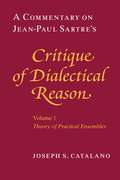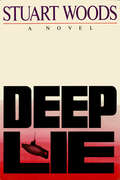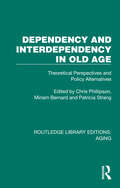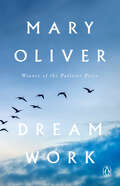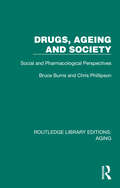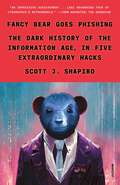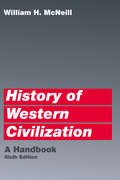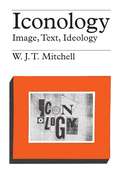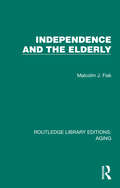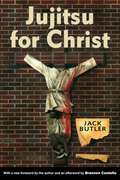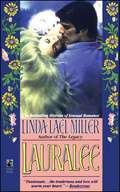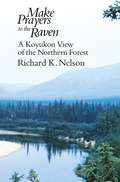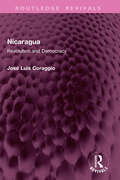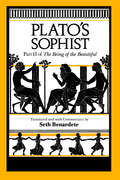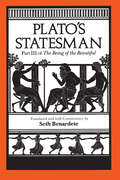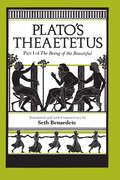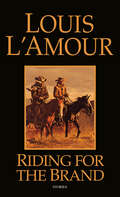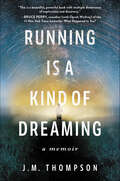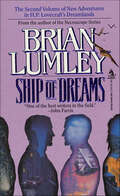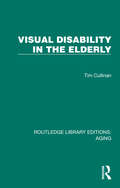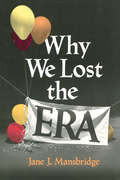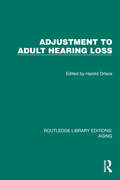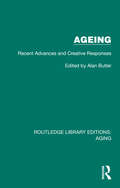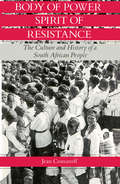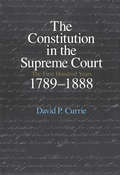- Table View
- List View
A Commentary on Jean-Paul Sartre's Critique of Dialectical Reason: Theory Of Practical Ensembles (Theory of Practical Ensembles)
by Joseph S. CatalanoSartre’s Critique of Dialectical Reason ranks with Being and Nothingness as a work of major philosophical significance, but it has been largely neglected. The first volume, published in 1960, was dismissed as a Marxist work at a time when structuralism was coming into vogue; the incomplete second volume has only recently been published in France. In this commentary on the first volume, Joseph S. Catalano restores the Critique to its deserved place among Sartre’s works and within philosophical discourse as a whole. Sartre attempts one of the most needed tasks of our times, Catalano asserts—the delivery of history into the hands of the average person. Sartre’s concern in the Critique is with the historical significance of everyday life. Can we, he asks, as individuals or even collectively, direct the course of our history? A historical context for our lives is given to us at birth, but we sustain that context with even our most mundane actions—buying a newspaper, waiting in line, eating a meal. In looking at history, Sartre argues, reason can never separate the historical situation of the investigator from the investigation. Thus reason falls into a dialectic, always depending upon the past for guidance but always being reshaped by the present. Clearly showing the influence of Marx on Sartre’s thought, the Critique adds the historical dimension lacking in Being and Nothingness. In placing the Critique within the corpus of Sartre’s philosophical writings, Catalano argues that it represents a development rather than a break from Sartre’s existentialist phase. Catalano has organized his commentary to follow the Critique and has supplied clear examples and concrete expositions of the most difficult ideas. He explicates the dialogue between Marx and Sartre that is internal to the text, and he also discusses Sartre’s Search for Method, which is published separately from the Critique in English editions.
Deep Lie (Will Lee Series #3)
by Stuart WoodsUndersea espionage meets heart-stopping suspense in this action-packed thriller in the Will Lee series featuring Kate Rule—from #1 New York Times bestselling author Stuart Woods. Sifting through reams of seemingly unrelated intelligence, CIA analyst Kate Rule discovers a chilling pattern: an ultrasecret Baltic submarine base...a crafty Russian spy-master in command...a carefully planned invasion about to be launched from dark waters. Her suspicions, however, are dismissed by those higher up; her theory, they say, is too crazy to be true. But to Kate, it's just crazy enough to succeed—unless she can stop it. If she's right, an attack sub has already penetrated friendly waters. Worse yet, the enemy has penetrated deep into her own life, so deep she can touch him. And in this game, one wrong touch can mean Armageddon.
Dependency and Interdependency in Old Age: Theoretical Perspectives and Policy Alternatives (Routledge Library Editions: Aging)
by Chris Phillipson Miriam Bernard Patricia StrangOriginally published in 1986, Dependency and Interdependency in Old Age presents papers from the British Society of Gerontology annual conference in 1985. The areas covered include: the sociology of ageing, methodological issues, evaluations of service provision, ethnographies of growing old, historical studies and political perspectives on ageing. A creative dialogue between the proponents of these themes was urgently needed at the time and it was hoped that this volume would stimulate such a discussion.
Dream Work
by Mary OliverNewly repackaged as a Penguin paperback, an &“astonishing&” book of poetry from the Pulitzer Prize–winning author of American Primitive and &“one of our very best poets&” (New York Times Book Review)Dream Work, a collection of forty-five poems originally published in 1986, follows both chronologically and logically Mary Oliver&’s American Primitive, which won her the Pulitzer Prize for poetry in 1983. The depth and diversity of perceptual awareness, so steadfast and radiant in American Primitive, continues in Dream Work. Additionally, she has turned her attention in these poems to the solitary and difficult labors of the spirit, to accepting the truth about one&’s personal world, and to valuing the triumphs while transcending the failures of human relationships.
Drugs, Ageing and Society: Social and Pharmacological Perspectives (Routledge Library Editions: Aging)
by Bruce Burns Chris PhillipsonDuring the 1970s and 1980s prescription and over-the-counter drugs had come to play a major role in the health care of older people. Originally published in 1986, this book reviews the historical background to this development and explores its social and pharmacological implications. The main aim of the study was to provide a critical perspective on drug use together with a framework for developing effective prescribing policies. The authors do not, in developing their arguments, reject the enormous value of drugs in the treatment of many illnesses affecting older people; they do, however, criticise excessive as well as inappropriate prescribing. The intention was to provide some practical illustrations of how the harmful effects of drug use can be curtailed. This book was aimed, in particular, at workers in the health services, for example: doctors, health visitors, district nurses, pharmacists, the professions allied to medicine. However, it should also be of interest to other groups such as social workers, carers, support groups and older people themselves.
Fancy Bear Goes Phishing: The Dark History of the Information Age, in Five Extraordinary Hacks
by Scott J. Shapiro“Unsettling, absolutely riveting, and—for better or worse—necessary reading.” —Brian Christian, author of Algorithms to Live By and The Alignment ProblemAn entertaining account of the philosophy and technology of hacking—and why we all need to understand it.It’s a signal paradox of our times that we live in an information society but do not know how it works. And without understanding how our information is stored, used, and protected, we are vulnerable to having it exploited. In Fancy Bear Goes Phishing, Scott J. Shapiro draws on his popular Yale University class about hacking to expose the secrets of the digital age. With lucidity and wit, he establishes that cybercrime has less to do with defective programming than with the faulty wiring of our psyches and society. And because hacking is a human-interest story, he tells the fascinating tales of perpetrators, including Robert Morris Jr., the graduate student who accidentally crashed the internet in the 1980s, and the Bulgarian “Dark Avenger,” who invented the first mutating computer-virus engine. We also meet a sixteen-year-old from South Boston who took control of Paris Hilton’s cell phone, the Russian intelligence officers who sought to take control of a US election, and others.In telling their stories, Shapiro exposes the hackers’ tool kits and gives fresh answers to vital questions: Why is the internet so vulnerable? What can we do in response? Combining the philosophical adventure of Gödel, Escher, Bach with dramatic true-crime narrative, the result is a lively and original account of the future of hacking, espionage, and war, and of how to live in an era of cybercrime.Includes black-and-white images
History of Western Civilization: A Handbook
by William H. McNeillRenowned historian William H. McNeil provides a brilliant narrative chronology of the development of Western civilization, representing its socio-political as well as cultural aspects. This sixth edition includes new material for the twentieth-century period and completely revised bibliographies. An invaluable tool for the study of Western civilization, the Handbook is an essential complement to readings in primary and secondary sources such as those in the nine-volume University of Chicago Readings in Western Civilization.
Iconology: Image, Text, Ideology
by W.J.T. Mitchel"[Mitchell] undertakes to explore the nature of images by comparing them with words, or, more precisely, by looking at them from the viewpoint of verbal language. . . . The most lucid exposition of the subject I have ever read."—Rudolf Arnheim, Times Literary Supplement
Independence and the Elderly (Routledge Library Editions: Aging)
by Malcolm J. FiskIn the 1980s much research into the needs of the elderly was undertaken from the perspective of a ‘sickness’ model, a model which reinforced labels of elderly people as frail, disabled, dependent and economically unproductive. Few studies adopted a positive attitude to ageing and elderly people.Originally published in 1986, reissued here with a new preface, this book helped to redress this imbalance by focusing on the theme of independence, examined particularly from the perspective of current housing and social policies relating to elderly people at the time. The author looks at sheltered housing in detail, including discussion of alarm systems, ‘staying put’ schemes and residential homes. The book was essential reading for academics and practitioners in the health and social welfare fields with a concern for the elderly and the ways in which they could retain a meaningful independence.
Jujitsu for Christ (Banner Books)
by Jack ButlerJack Butler's Jujitsu for Christ—originally published in 1986—follows the adventures of Roger Wing, a white, born-again Christian and karate instructor who opens a martial arts studio in downtown Jackson, Mississippi, during the tensest years of the civil rights era. Ambivalent about his religion and his region, he befriends the Gandys, an African American family—parents A. L. and Snower Mae, teenaged son T. J., daughter Eleanor Roosevelt, and youngest son Marcus—who has moved to Jackson from the Delta in hopes of greater opportunity for their children. As the political heat rises, Roger and the Gandys find their lives intersecting in unexpected ways. Their often-hilarious interactions are told against the backdrop of Mississippi's racial trauma—Governor Ross Barnett's “I Love Mississippi” speech at the 1962 Ole Miss–Kentucky football game in Jackson; the riots at the University of Mississippi over James Meredith's admission; the fieldwork of Medgar Evers, the NAACP, and various activist organizations; and the lingering aura of Emmett Till's lynching. Drawing not only on William Faulkner's gothic-modernist Yoknapatawpha County but also on Edgar Rice Burroughs's high-adventure Martian pulps, Jujitsu for Christ powerfully illuminates vexed questions of racial identity and American history, revealing complexities and subtleties too often overlooked. It is a remarkable novel about the civil rights era, and how our memories of that era continue to shape our political landscape and to resonate in contemporary conversations about southern identity. But, mostly, it's very funny, in a mode that's experimental, playful, sexy, and disturbing all at once. Butler offers a new foreword to the novel. Brannon Costello, a scholar of contemporary southern literature and fan of Butler's work, writes an afterword that situates the novel in its historical context and in the southern literary canon.
Lauralee
by Linda Lael MillerFrom New York Times bestselling author Linda Lael Miller comes the tale of a woman who braved the heights of a passion beyond reason.Lauralee Parker knew too well what drink could do to a man. Her own husband had died at the door of a town saloon. With hymns and hatchets, Lauralee and the women of Halpern&’s Ferry closed down all the taverns—all but the one Jay McCallum was determined to save. After his brother, a saloonkeeper, was found brutally slain, Jay had come to town ready to accuse Lauralee—only to be captivated by her winsome beauty. The proud, powerful man melted Lauralee&’s defiant heart with the aching hunger of his love—and with the sweet, urgent ecstasy they shared. But even as she surrendered to her rich and wild desire, Lauralee&’s joy was shadowed by the haunting mystery of Jay&’s brother&’s death...a mystery whose shocking outcome could forever destroy her future&’s radiant promise.
Make Prayers to the Raven: A Koyukon View of the Northern Forest
by Richard K. Nelson"Nelson spent a year among the Koyukon people of western Alaska, studying their intimate relationship with animals and the land. His chronicle of that visit represents a thorough and elegant account of the mystical connection between Native Americans and the natural world."—Outside "This admirable reflection on the natural history of the Koyukon River drainage in Alaska is founded on knowledge the author gained as a student of the Koyukon culture, indigenous to that region. He presents these Athapascan views of the land—principally of its animals and Koyukon relationships with those creatures—together with a measured account of his own experiences and doubts. . . . For someone in search of a native American expression of 'ecology' and natural history, I can think of no better place to begin than with this work."—Barry Lopez, Orion Nature Quarterly "Far from being a romantic attempt to pass on the spiritual lore of Native Americans for a quick fix by others, this is a very serious ethnographic study of some Alaskan Indians in the Northern Forest area. . . . He has painstakingly regarded their views of earth, sky, water, mammals and every creeping thing that creepeth upon the earth. He does admire their love of nature and spirit. Those who see the world through his eyes using their eyes will likely come away with new respect for the boreal forest and those who live with it and in it, not against it."—The Christian Century "In Make Prayers to the Raven Nelson reveals to us the Koyukon beliefs and attitudes toward the fauna that surround them in their forested habitat close to the lower Yukon. . . . Nelson's presentation also gives rich insights into the Koyukon subsistence cycle through the year and into the hardships of life in this northern region. The book is written with both brain and heart. . . . This book represents a landmark: never before has the integration of American Indians with their environment been so well spelled out."—Ake Hultkrantz, Journal of Forest History
Nicaragua: Revolution and Democracy (Routledge Revivals)
by José Luis CoraggioFirst published in 1986, Nicaragua, written from an insider's point of view breaks the barrier of disinformation which has surrounded the Sandinista revolution. To accomplish this task the author discusses the major forces that have shaped Nicaragua’s development during the past decade as well as all pertinent events leading to and following the revolution. It is the author's contention that the Sandinista revolution is an unusual combination of armed struggle to reach power and democratic procedures to build a new society. This makes the revolution a very dangerous example for the stability of a hegemonic state that tries to pacify the needs of the masses by means of repression and spurious applications of democratic principles. This book's main thesis is that socialism and democracy are not contradictory but are part of the same process. Thus, any attempt to think in terms of necessary stages is misreading the classics of Marx and Lenin.This book will be of interest to scholars and researchers of political science, Latin American studies, Latin American history and politics.
Plato's Sophist: Part II of The Being of the Beautiful
by PlatoTheaetetus, the Sophist, and the Statesman are a trilogy of Platonic dialogues that show Socrates formulating his conception of philosophy as he prepares the defense for his trial. Originally published together as The Being of the Beautiful, these translations can be read separately or as a trilogy. Each includes an introduction, extensive notes, and comprehensive commentary that examines the trilogy's motifs and relationships. "Seth Benardete is one of the very few contemporary classicists who combine the highest philological competence with a subtlety and taste that approximate that of the ancients. At the same time, he as set himself the entirely modern hermeneutical task of uncovering what the ancients preferred to keep veiled, of making explicit what they indicated, and hence...of showing the naked ugliness of artificial beauty."—Stanley Rose, Graduate Faculty Philosophy Journal Seth Benardete (1930-2001) was professor of classics at New York University. He was the author or translator of many books, most recently The Argument of the Action, Plato's "Laws," and Plato's "Symposium," all published by the University of Chicago Press.
Plato's Statesman: Part III of The Being of the Beautiful
by PlatoTheaetetus, the Sophist, and the Statesman are a trilogy of Platonic dialogues that show Socrates formulating his conception of philosophy as he prepares the defense for his trial. Originally published together as The Being of the Beautiful, these translations can be read separately or as a trilogy. Each includes an introduction, extensive notes, and comprehensive commentary that examines the trilogy's motifs and relationships. "Seth Benardete is one of the very few contemporary classicists who combine the highest philological competence with a subtlety and taste that approximate that of the ancients. At the same time, he as set himself the entirely modern hermeneutical task of uncovering what the ancients preferred to keep veiled, of making explicit what they indicated, and hence...of showing the naked ugliness of artificial beauty."—Stanley Rose, Graduate Faculty Philosophy Journal Seth Benardete (1930-2001) was professor of classics at New York University. He was the author or translator of many books, most recently The Argument of the Action, Plato's "Laws," and Plato's "Symposium," all published by the University of Chicago Press.
Plato's Theaetetus: Part I of The Being of the Beautiful
by PlatoTheaetetus, the Sophist, and the Statesman are a trilogy of Platonic dialogues that show Socrates formulating his conception of philosophy as he prepares the defense for his trial. Originally published together as The Being of the Beautiful, these translations can be read separately or as a trilogy. Each includes an introduction, extensive notes, and comprehensive commentary that examines the trilogy's motifs and relationships. "Seth Benardete is one of the very few contemporary classicists who combine the highest philological competence with a subtlety and taste that approximate that of the ancients. At the same time, he as set himself the entirely modern hermeneutical task of uncovering what the ancients preferred to keep veiled, of making explicit what they indicated, and hence...of showing the naked ugliness of artificial beauty."—Stanley Rose, Graduate Faculty Philosophy Journal Seth Benardete (1930-2001) was professor of classics at New York University. He was the author or translator of many books, most recently The Argument of the Action, Plato's "Laws," and Plato's "Symposium," all published by the University of Chicago Press.
Riding for the Brand: Stories
by Louis L'AmourThe open West was a land where wanderers could find themselves a home—one to fight for, be changed by, sometimes to die for. Jed Asbury was one such journeyman, taking on the identity of a dead person. Allen Ring was another: He&’d won his plot of land in a card game only to find he had to win again with a gun. From a has-been boxer to a ranch hand taking on his bosses&’ troubles, the characters in these classic Louis L&’Amour short stories are all &“riding for the brand&”—staying loyal to what matters, staking the West with their courage and their blood.
Running Is a Kind of Dreaming: A Memoir
by J. M. ThompsonA powerful, breathtaking memoir about a young man's descent into madness, and how running saved his life.“Voluntary or involuntary?” asked the nurse who admitted J. M. Thompson to a San Francisco psychiatric hospital in January 2005. Following years of depression, ineffective medication, and therapy that went nowhere, Thompson feared he was falling into an inescapable darkness. He decided that death was his only exit route from the torture of his mind. After a suicide attempt, he spent weeks confined on the psych ward, feeling scared, alone, and trapped. One afternoon during an exercise break he experienced a sudden urge. “Run, I thought. Run before it’s too late and you’re stuck down there. Right now. Run. ” The impulse that starts with sprints across a hospital rooftop turns into all night runs in the mountains. Through motion and immersion in the beauty of nature, Thompson finds a way out of the hell of depression and drug addiction. Step by step, mile by mile, his body and mind heal. In this lyrical, vulnerable, and breathtaking memoir, J. M. Thompson, now a successful psychologist, retraces the path that led him from despair to wellness, detailing the chilling childhood trauma that caused his depression, and the unorthodox treatment that saved him. Running Is a Kind of Dreaming is a luminous literary testament to the universal human capacity to recover from our deepest wounds.
Ship of Dreams (Dreamlands #2)
by Brian LumleyOnce David Hero was an ordinary man living in the real world. Now he is trapped in the Dreamlands, cut off from the waking world. David Hero's dreams and nightmares have become his only reality.Led by wickedly beautiful Queen Zura, the zombie armies of the dead are on the march. They will destroy the beautiful Dreamlands, making them a permanent, deadly nightmare.Unaware of the marauding zombies, David Hero and his friend Eldin voyage through the clouds in a wondrous skyship. Their journey is interrupted by a pack of faceless nightgaunts, terrifying creatures, half-man and half-bat--and all evil!David Hero is one of Zura's first targets. As a man of the waking world, he can withstand her terrible seductive power and shatter her shambling armies. David Hero must be the first Dreamlands hero to die.At the Publisher's request, this title is being sold without Digital Rights Management Software (DRM) applied.
Visual Disability in the Elderly (Routledge Library Editions: Aging)
by Tim CullinanVisual disability (including blindness) is of major significance among the elderly, and since it is so crucial to the quality of life of the elderly, it is necessary for all professional staff concerned with old people to have an understanding of the subject. Originally published in 1986, this book was written for such an audience, whether involved in care in the hospital, nursing home or the person’s own home, and includes physicians in geriatric medicine, family doctors, nurses, social workers and staff in old people’s homes, as well as volunteers or relatives. The book will also interest ophthalmic surgeons, doctors, nurses and students.The book describes the nature of visual disability, the ‘ageing eye’ and epidemiology of the problem. It discusses the measurement of distant and near vision and how environmental factors such as lighting, colour contrasts, interior design and external architecture can affect vision. Aids, from suitable simple lenses to complex low vision aids, are also reviewed.
Why We Lost the ERA
by Jane J. MansbridgeIn this work, Jane Mansbridge's fresh insights uncover a significant democratic irony - the development of self-defeating, contradictory forces within a democratic movement in the course of its struggle to promote its version of the common good. Mansbridge's book is absolutely essential reading for anyone interested in democratic theory and practice.
Adjustment to Adult Hearing Loss (Routledge Library Editions: Aging)
by Harold OrlansOriginally published in 1985, the chapters in this book were, with two exceptions, first prepared for and discussed at a monthly research seminar series on Hearing Loss in Adulthood during the 1983-1984 academic year. One of the exceptions was included to fill a major gap in the literature dealing with the experience of persons who suffer a moderate hearing loss in midlife. The other, by the editor, presents his observations and reiterates significant points made by a number of seminar members. As a whole this book shines a light on the experience of hearing-impaired people, particularly the loss of hearing in later life.
Ageing: Recent Advances and Creative Responses (Routledge Library Editions: Aging)
by Alan ButlerOriginally published in 1985, Ageing: Recent Advances and Creative Responses contains a selection of the papers contributed to the British Society of Gerontology Annual Conference, held in Leeds in September 1984. The book examines some of the positive and innovative multi-disciplinary work which is going on in the field of human ageing, placing particular emphasis on issues such as: the use of leisure in later life; association and friendship; innovations in the funding of services; the political and social views of older people themselves; the importance of an adequate income and appropriate housing; the psychologist’s role in prevention and early detection of disorders, and work in the community.The book will be of value to all academics, policy makers and practitioners with an interest in human ageing and later life, the health and social difficulties encountered by this age group, and the positive responses that can be made by both the providers of services and the elderly themselves.
Body of Power, Spirit of Resistance: The Culture and History of a South African People
by Jean ComaroffIn this sophisticated study of power and resistance, Jean Comaroff analyzes the changing predicament of the Barolong boo Ratshidi, a people on the margins of the South African state. Like others on the fringes of the modern world system, the Tshidi struggle to construct a viable order of signs and practices through which they act upon the forces that engulf them. Their dissenting Churches of Zion have provided an effective medium for reconstructing a sense of history and identity, one that protests the terms of colonial and post-colonial society and culture.
The Constitution in the Supreme Court: The First Hundred Years, 1789–1888
by David P. CurrieCurrie's masterful synthesis of legal analysis and narrative history, gives us a sophisticated and much-needed evaluation of the Supreme Court's first hundred years. "A thorough, systematic, and careful assessment. . . . As a reference work for constitutional teachers, it is a gold mine."—Charles A. Lofgren, Constitutional Commentary
